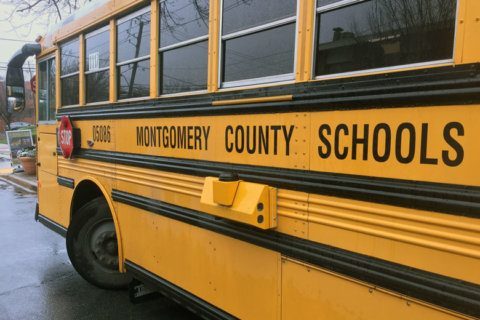WASHINGTON — Nineteen-year-old Lizandro Claros-Saravia was days away from heading to Louisburg College in North Carolina, where he’d won a soccer scholarship.
But first, he had to check in with immigration officials.
He and his 22-year-old brother Diego came to this country in 2009, but they didn’t come legally. They had won a stay of removal in 2013, but since then, those applications for a stay of deportation had been denied.
Nicholas Katz, a CASA de Maryland attorney who had been working with the family, attended the check-in with Immigrations and Customs Enforcement last week. They were all stunned, Katz said, by what they heard.
“They said they were going to detain them and process them for immediate deportation. And one of the reasons they actually gave was that Lizandro had gotten into college.”
The two were deported Wednesday to their native El Salvador, Katz said. “It was just heartbreaking to see them forcibly separated,” he said.
Saravia’s coach called him one of the best players in America.
“He just has a rare natural sense for defending — something you rarely see in youth soccer,” Brett Colton, who coached Claros-Saravia at the Bethesda Soccer Club from 2015 to 2017, told ABC News. “He’s a fantastic center back and one of the best in the country.”
Other members of the Bethesda Soccer Club — a travel and youth development program — gathered outside of Department of Homeland Security headquarters in Washington D.C. to protest his deportation, according to Colton, who described teammates as being “completely devastated” by the news.
“He was a dream kid to coach,” Colton said, adding that Claros-Saravia only missed two practices during the entire time he coached him, and that both took place during exam week. “He was trying to do the right thing.”
Colton said that he had received a soccer scholarship to attend Louisburg College in North Carolina this fall, a junior college, but that the offer was only considered a stepping stone to a high profile four-year college program.
In a statement, Matthew Bourke of ICE’s public affairs office explained the background of the case: “Claros-Saravia was granted a stay of removal, valid for one year, on May 13, 2013, but two subsequent applications were denied,” he wrote.
“Since 2016, ICE deportation officers in Baltimore have instructed him to purchase a ticket for his departure.”
Supporters of the two Gaithersburg residents say deportation makes no sense. They cite the fact that neither has a criminal record.
In a statement, Montgomery County Executive Ike Leggett said he was “shocked and dismayed” that Claros-Saravia, a graduate of Quince Orchard High School, was deported.
And Rep. John Delaney, a Democrat representing Maryland’s 6th District, said, “This move doesn’t improve anyone’s life, it doesn’t make anyone safer and it doesn’t help anyone.”
He called for “a sane immigration policy based on our national interest.”
Sen. Chris Van Hollen issued tweets that read in part, “We should be focused on MS-13, not scholarship winners” and “Maryland was stronger with Diego and Lizandro contributing to society, & my heart goes out to them & their family at this difficult time.”
But Bourke said ICE “does not exempt classes or categories of removable aliens from potential enforcement.
“All of those in violation of the immigration laws may be subject to immigration arrest, detention and, if found removable by final order, removal from the United States,” he continued.
Boyd Sturges, the general counsel at Louisburg College, said officials there learned about the pending deportation just days ago.
“We certainly would like the young man to come to school, but we don’t make the rules,” he said. The college does not inquire about a prospective student’s immigration status, he said.
“We’re not in the immigration business just like ICE is not in the education business,” Sturges said.
ABC News contributed to this report.








